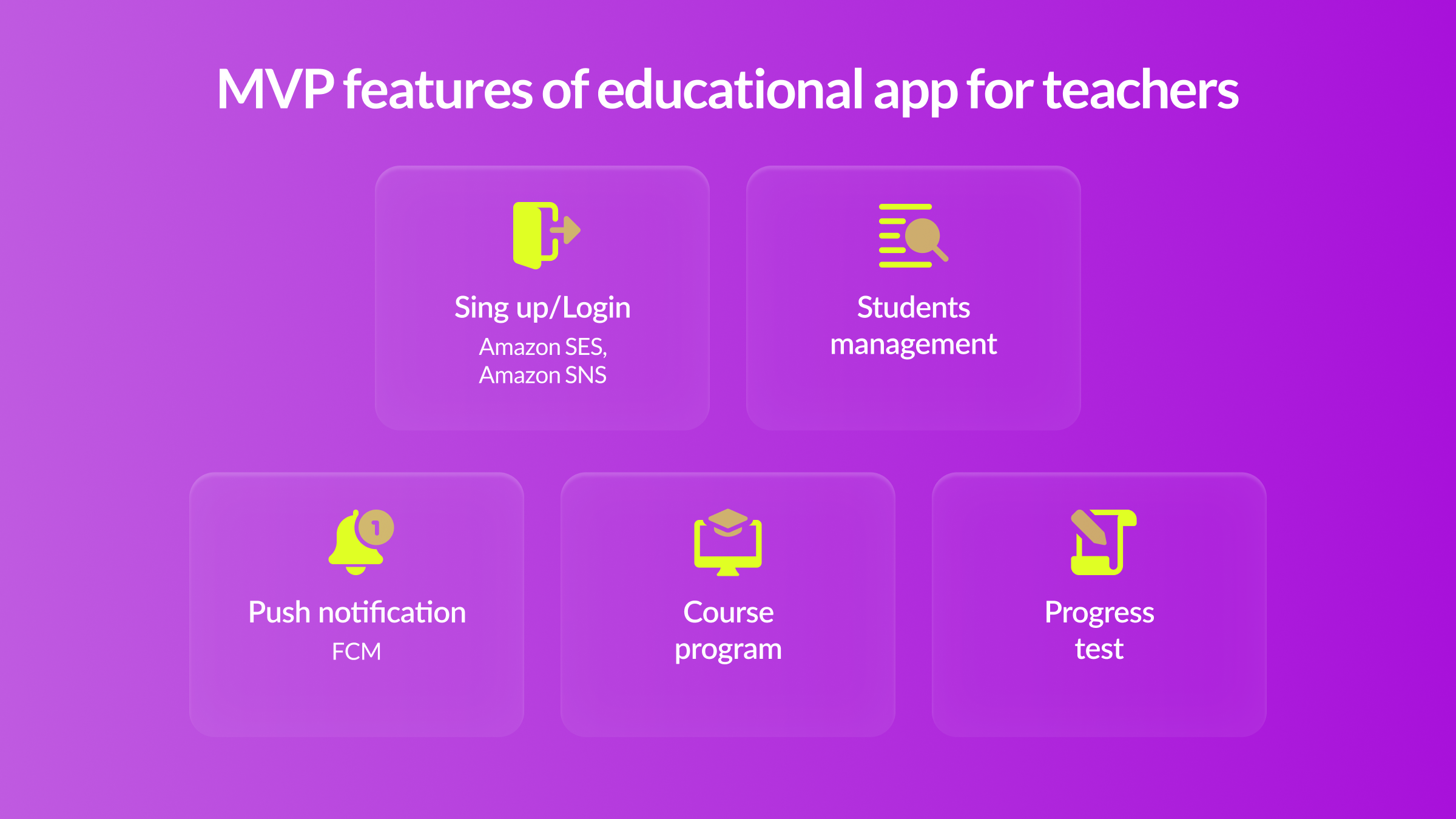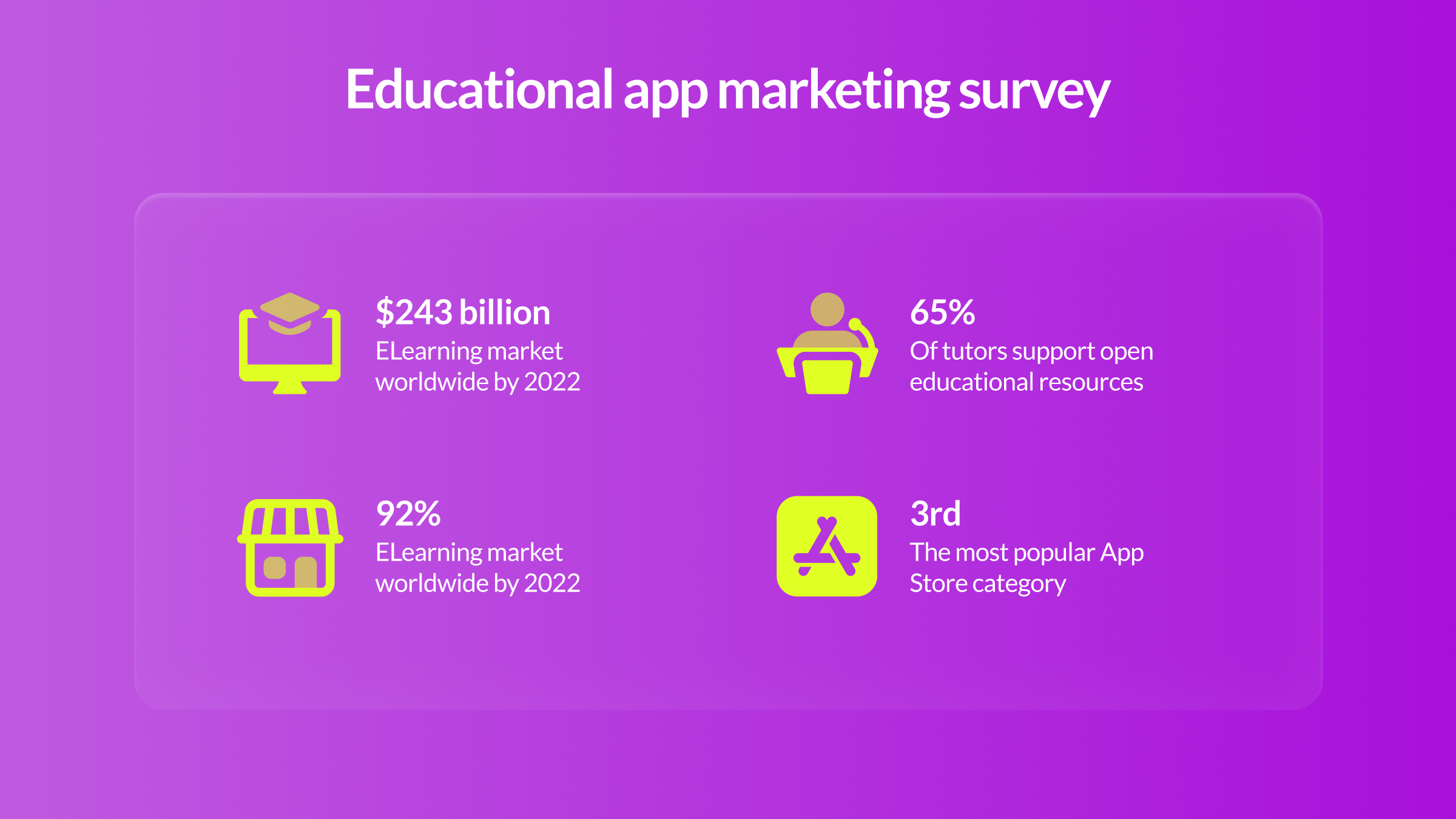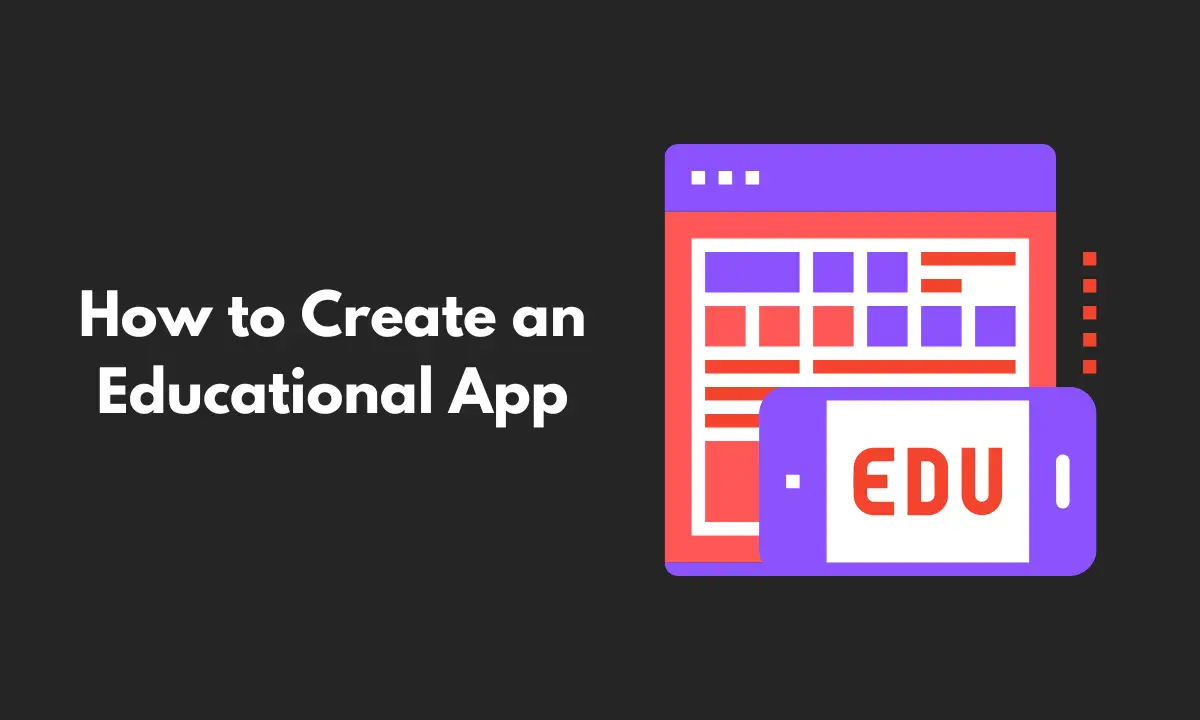The popularity of educational apps has been on the rise in recent years, and this trend is expected to continue in 2023. The increasing adoption of mobile devices and the growing demand for online education are the major drivers of the growth of the educational app market. According to a report by Market Research Future, the global educational app market is expected to grow at a CAGR of 27.1% during the forecast period 2023-2028. In this post, we will discuss how to create an educational app, MVP features, development cost, and monetization models in 2023.
Market Prospects
The market prospects for educational apps are promising. With the rise of e-learning, the demand for mobile educational apps is increasing, according to a report by Statista, the global e-learning market is expected to reach $243 billion by 2022. Furthermore, the COVID-19 pandemic has accelerated the adoption of e-learning and online education, making educational apps more relevant than ever. The increased demand for online education is expected to drive the growth of the educational app market.
Educational Applications Types
There are different types of educational apps, and choosing the right type is crucial for the success of your app. Some popular types of educational apps contain:
- Language learning. Learning a new language or improving their language skills.
- Test preparation. Preparing for exams by providing study materials, practice questions, and mock tests.
- Subject-specific. These apps focus on specific subjects such as math, science, or history.
- Skill-based learning. Teaching users a specific skill, such as cooking, music, or art.
- Educational Games. Making the studying process fun by gamifying the learning process.

Required Features and Technologies
The features and technologies required for an educational app depend on the type of app you want to create. However, there are some basic features that every educational app should have. These cover:
- User registration and profile. This feature allows users to create an account and personalize their learning experience.
- Learning content. This feature provides users with access to learning materials such as videos, articles, and quizzes.
- Progress tracking. This feature allows users to track their progress and see how much they have learned.
- Feedback and evaluation. This feature provides users with feedback on their performance and helps them identify areas for improvement.
- Social sharing. This feature allows users to share their achievements and progress on social media platforms.
The technologies required for an educational app include:
- Mobile app development platforms. They provide developers with the tools and frameworks to build mobile apps for platforms like iOS and Android.
- Cloud services. Such tools are used to store and manage data, as well as to provide scalability and security for the app.
- Analytics tools. These tools are used to track user behavior and app performance, which can be used to improve the app.
Cost to Build an Educational App
The cost of building an educational app depends on various factors, such as the complexity of the app, the features required, and the development platform used. However, we can estimate the software development costs of building an educational app based on the MVP features required. The MVP features for an educational app include:
- User registration and profile – $3,000-$5,000
- Learning content – $6,000-$10,000
- Progress tracking – $3,000-$5,000
- Feedback and evaluation – $4,000-$6,000
- Social sharing – $2,000-$4,000
Therefore, it’s crucial to clearly understand your app’s requirements and budget before embarking on the development process. You can consult with a reputable tech company to get a more accurate estimate of the mobile, web, or tablet app development cost based on your specific requirements.
Examples of Educational Apps
There are numerous educational apps available in the market, each with its unique features and functionalities. Some of the most popular educational apps include:
- Duolingo. A language learning app that uses gamification to make learning fun and engaging.
- Khan Academy. An app that offers free online courses and lessons on various subjects, including math, science, and history.
- Quizlet. A study tool that provides flashcards, quizzes, and study games for test preparation.
- Photomath. A math learning app that uses AI-powered camera technology to solve math problems and provide step-by-step explanations.
- Rosetta Stone. A language learning app that offers immersive learning experiences through speech recognition and interactive lessons.
Monetization Models
There are various monetization models for educational apps, and choosing the right one depends on your app’s objectives and target audience. Some popular monetization models include:
- Freemium. Offering the app for free but includes premium features that users can access by paying a subscription fee.
- In-app purchases – This model allows users to buy additional features, content, or virtual goods within the app.
- Advertising. Displaying ads within the app and the revenue is generated from clicks or impressions.
- Paid app. Charging users a one-time fee to download and use the app.
- Sponsorship – Partnering with sponsors or brands to promote their products or services within the app.

Summary
The educational app market is expected to continue growing in the current year, driven by the increasing demand for online education and the rise of mobile devices. Creating a successful educational app requires careful planning, understanding your target audience, and incorporating the right features and technologies. While the cost of building an educational app can vary depending on the complexity of the app and the features required, the MVP cost estimation can be used as a rough guide. Finally, choosing the right monetization model is crucial for the success of your app, and it’s important to understand your target audience’s preferences and behaviors when making this decision.


